The Trump administration sharply accelerated its goal of driving Iran’s oil exports to zero, ending sanctions exemptions that it previously granted to some of the Islamic Republic’s biggest customers.
The market widely expected Washington to extend the waivers for five of the countries. However, the administration says that any country still importing oil from Iran will be subject to US sanctions beginning on May 2.
“Saudi Arabia and others in OPEC will more than make up the Oil Flow difference in our now Full Sanctions on Iranian Oil,” Trump said in a tweet on 22nd of April after he ordered a tightening of sanctions on Iran’s oil exports.
To shed more light on the issue we reached out to Dr. Albert Bininachvili, a professor of political science at the Columbia University for an interview.
Here is the second part of the interview:
Commenting on the Saudi role in OPEC to help Washington to materialize its maximum pressure policy on Iran, bininachvili said, “OPEC is now a completely different organization in comparison to one founded 60 years ago. Not much has left from the sense of discipline and solidarity.”
“The important thing to recognize is that it also has a new identity that may reshape oil geopolitics for years to come.”
Pause
“As OPEC reasserts its traditional role, the organization has been reincarnated in new form, says Jason Bordoff the leading energy expert from the Columbia University. What matters today is the spare capacity. This factor determines the indisputably leading role of Saudi Arabia in the organization thanks to its meaningful amount of spare capacity, because it is the only country that chooses, at a cost to itself, to produce significantly less than it otherwise could.”
“The second major change in OPEC is that its second-most important player, after Saudi Arabia, is now Russia, despite not being an official member of OPEC at all. The OPEC+ deal reaffirmed the newfound role of Russia, the world’s largest crude oil producer, in managing world oil prices with Saudi Arabia.
This new alliance between Saudi Arabia and Russia in managing world oil markets marks an important shift. Deepening and possibly formalizing the Saudi-Russian oil alliance marks a potentially historic shift for OPEC, as the decision-making power is almost completely concentrated in the hands of Riyadh and Moscow to the detriment of other members left with little or no say.
Against the backdrop of the current market realities, with well defined shares of specific producers, it is quite probable to expect that the Iran’s share will most probably be grabbed by Russia and Saudi Arabia and other Gulf spare capacity holders.”
He added, “The New wave of the US sanctions is a serious challenge to the viability of the IRI’s Eastern Strategy, a policy of preferential development of relations with Russia, China and India as an alternative to the West.”
“Naturally, Iranian strategy will have to take into account Russia, China and India’s strategic outlooks. The three countries will have to balance their geo-economic interests with the US on one hand and Iran on the other. The three countries are likely to use their cooperation with Iran as leverage in their respective bilateral relationships with the Trump administration.
Moscow is tied to Tehran with a network of relations ranging from massive military hardware procurements, and diplomatic support in the UN, to a broad cooperation in the energy sphere including nuclear, gas and oil and military cooperation in Syria. A factor of particular importance is the fact that Russia is one the world’s leading oil producers, the second importer and the holder of significant spare capacity.
Formally not an OPEC member Moscow, nevertheless has a say in its decisions through the OPEC plus mechanism and actively influences the policy of this organization through coordination agreement it has with the OPEC’s leader Saudi Arabia. Russia also has willingness not to miss at any opportunity to challenge the US interests.
Russia is in a prime position to deliver the oil removed from markets because of U.S. sanctions against Iran, which will result in development of cooperation between Moscow and countries important to American foreign policy. Thus, Russia will gain new leverage against the United States.
Additionally, and no less importantly, Russia is ready to increase its export. Despite cooperating with Iran on many issues, Russia has a good chance to grab a significant chunk of Iranian market share. Any increase in sales of Russian oil will soften the blow of U.S. sanctions on global oil markets. This indirectly supports U.S. foreign policy, providing the Kremlin with a card in relations with Washington.”
Bininachvili went on to say, “Whatever the state of relations between Moscow and Washington, Russia will contribute to easing the impact of Iranian oil removal from global markets. Economically, Russian producers and the state budget desperately need new revenues. Therefore Moscow tries to keep oil export generated cash flow stable by increasing export satisfying the growing global demand, especially in Asia. Among the buyers of Iranian oil there are countries, mostly in Asia, important to U.S. foreign policy. By developing energy cooperation with them, Moscow gets an opportunity to deepen bilateral partnerships with these states on issues that are important to Washington, such as issues tied to North Korea or Afghanistan.”
“The EU, despite its vocal criticism of Trump’s Iran policy, is yet to make any actual moves against the United States. The EU cost-benefit analysis is not in Iran’s favor.
Arguably, the same is correct for China: among many issues with the United States the issue of Iranian oil is hardly on the top of the Beijing’s agenda.
Russia might very well be the only player willing and able to help Iran while undercutting the market positions lost due to U.S. sanctions.
For example, Russia may be interested in buying Iranian oil.
The conflict in Syria has proved that Moscow and Tehran may disagree on some issues while productively cooperating on many others.”
“Although Trump administration has warned Moscow against any actions that could help the Islamic Republic evade the measures, Russia may try to help Iran counter US attempts to throttle its oil sales when sanctions come into effect by trading Tehran’s crude in defiance of Washington. But Russia is looking to “continue developing” its trading of Iranian oil, which it sells to third countries under a 2014 oil-for-goods deal, regardless of the sanctions. The 2014 deal between Russia and Iran uses a formerly dormant Soviet state enterprise, Promsyryoimport. The amount traded has been around 100,000 barrels a day of Iranian crude, according to both countries’ ministers, though it is unclear who has bought the oil. In exchange, Tehran uses the revenue to pay for Russian goods and services such as power generation, railway infrastructure or agricultural products.
The 2014 Russia-Iran deal allows for an increase in currently-traded volumes and Iran will be looking for additional buyers if some of its regular customers turn away when the sanctions take effect.
Both Russia and Iran are part of a 24-country coalition between OPEC and non-OPEC oil producers to regulate their output to try and balance oil markets over the past two years. Mr Novak said in November 2018 that the threat of US retaliation for handling Iranian crude did not concern Moscow. “We already live in the conditions of sanctions,” he said. “We do not recognize the sanctions introduced unilaterally without the United Nations, we consider those methods illegal per se.”
A number of countries which enjoyed U.S. waivers for some time can also develop their political partnerships with Russia based on increased energy cooperation. Indian leadership is hardly satisfied with U.S. sanctions against Iran messing with Indian energy security. Turkey, Italy, and Greece already hardly belong to the countries providing the United States with full support in its effort to contain Russia. Energy cooperation is among the main reasons for that pushback.
President Trump decisively conducts the campaign of pressure and sanctions against the Islamic Republic and such campaign leads to complications for the United States elsewhere, sometimes unknowingly playing into Russia’s hands.”
Interview by Payman Yazdani






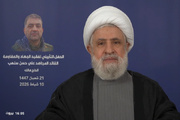
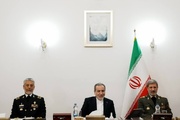
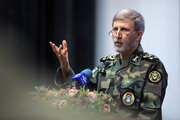
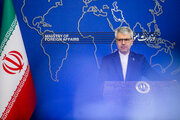
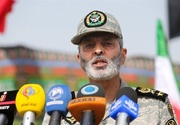

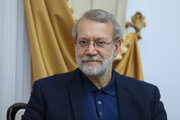
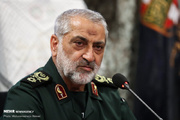




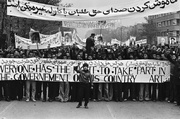




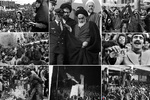
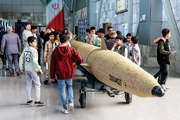

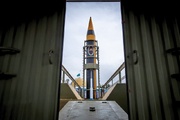
Your Comment